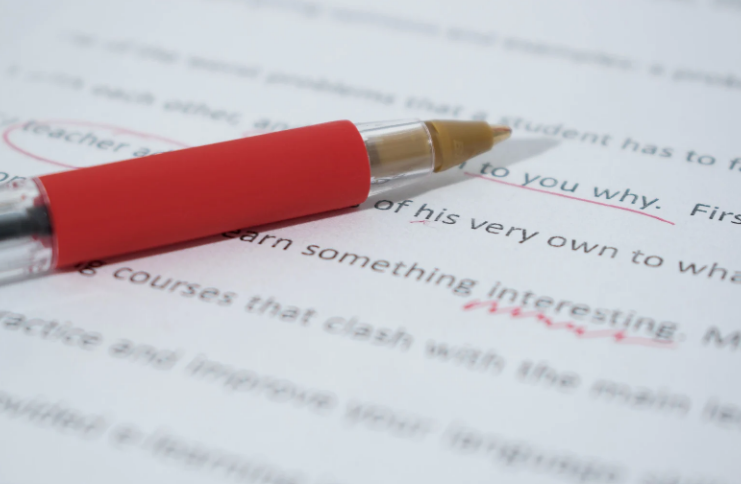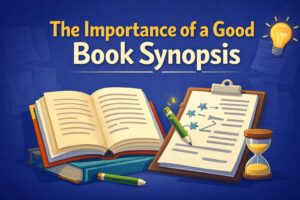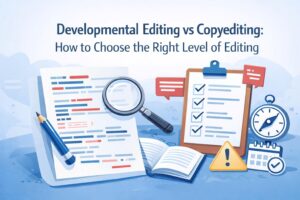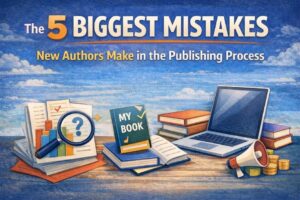Writing a book is a massive accomplishment, but the journey doesn’t end once you’ve finished the last chapter. One of the most important steps before publishing is proofreading. Proofreading ensures that your manuscript is polished, free of errors, and ready to be presented to the world. But why should you invest in professional book proofreading services?
Let’s explore why proofreading is essential, who proofreads a book for publication, and whether AI can help in this process.
Table of Contents
What is Proofreading, and Why Is It Important?
Proofreading is the final stage of editing where your manuscript is reviewed for any lingering errors in grammar, spelling, punctuation, and formatting. This step is crucial because even minor mistakes can distract readers and undermine your credibility as an author. After putting in months (or even years) of effort into writing, proofreading ensures that your work is flawless and ready for publication.
Book proofreading services take a meticulous approach to your manuscript, identifying those tiny errors that can easily be overlooked. Whether you’re self-publishing or working with a traditional publisher, a clean, error-free manuscript is essential.
How to Proofread Your Book
Before you decide to hire a professional, it’s good to know how to proofread your own work. Here are a few basic steps:
- Take a Break: After finishing your manuscript, give it some time before proofreading. Fresh eyes catch more errors.
- Read Aloud: Reading your text aloud helps you catch awkward phrases, missed words, and unnatural dialogue.
- Use Editing Tools: Tools like spell checkers or grammar apps can catch many issues, but they shouldn’t replace a thorough human review.
- Focus on One Type of Error at a Time: Start with grammar, then spelling, and finally, punctuation. Focusing on one issue at a time improves accuracy.
While these tips help, it’s often hard for writers to spot their own mistakes, which is why hiring a professional is highly recommended.
Who Proofreads a Book for Publication?
When publishing a book, various professionals may be involved in proofreading. Traditional publishers often employ in-house proofreaders who work closely with editors. If you’re self-publishing, you can hire freelance proofreaders or professional proofreading services to ensure your manuscript is error-free.
Professional proofreaders specialize in catching errors that even the most experienced writers miss. They provide an objective, unbiased review of your manuscript, ensuring clarity, consistency, and readability. This attention to detail is key for readers to focus on your story, not the mistakes.
For authors who want a thorough, professional review, book proofreading services offer a reliable solution to ensure every word on the page is perfect.
Can AI Do Proofreading?
With advancements in technology, many authors wonder if AI can handle proofreading tasks. Tools like Grammarly or ProWritingAid offer automated suggestions for grammar and style, but can AI do proofreading as well as a human? The short answer is: Not quite.
While AI tools are fantastic for catching common grammar and punctuation errors, they struggle with context and nuance. For example, AI might miss subtle mistakes in dialogue or misunderstand the tone of your narrative. AI also lacks the human touch needed to ensure your writing flows naturally and that any creative choices are respected.
A professional proofreader understands the complexities of language, tone, and style that AI simply cannot match. While AI can assist in the early stages, professional book proofreading services are still essential for a final, polished manuscript.
The Human Touch: Why Professional Proofreaders Are Still Essential
Proofreading isn’t just about fixing technical errors. It’s about ensuring that the reading experience is smooth, consistent, and engaging. Humans understand context, tone, and flow in ways that AI cannot. A professional proofreader will ensure that:
- Sentences are clear and concise.
- The narrative flows logically.
- There’s consistency in character names, locations, and timelines.
- Stylistic choices are respected and enhanced.
Hiring a professional proofreader isn’t just about catching typos; it’s about polishing your work to ensure it’s the best version possible before publication.
The Difference Between Editing and Proofreading
Many writers confuse editing with proofreading, but they serve different purposes. Editing involves improving the overall structure, content, and style of a manuscript. It focuses on things like plot development, pacing, and character arcs. Proofreading, on the other hand, focuses on surface-level issues such as grammar, punctuation, and spelling.
It’s important to have your manuscript edited first before moving on to the proofreading stage. Proofreading is the final step to ensure your manuscript is error-free and ready for publication.
Why Book Proofreading Services Are Worth the Investment
Proofreading may seem like a simple task, but even the smallest mistakes can have a big impact on the perception of your work. For self-published authors especially, the responsibility for ensuring your book is perfect falls entirely on you. Investing in professional book proofreading services not only saves time but also gives you peace of mind, knowing that your manuscript is being carefully reviewed by an expert.
Here’s why it’s worth it:
- Polished Presentation: A proofread manuscript looks professional, giving readers confidence in your work.
- Increased Credibility: Errors can harm your reputation as an author. Proofreading ensures your work is taken seriously.
- Reader Satisfaction: A well-polished book keeps readers engaged and prevents distractions from typos or confusing sentences.
- Higher Reviews: Well-edited books are more likely to receive positive reviews, which can significantly impact sales and reputation.
When Should You Hire a Professional Proofreader?
The best time to hire a proofreader is once your manuscript has gone through all stages of editing and is almost ready for publication. Proofreading is the final check before your manuscript is formatted and published. If you’re unsure whether your book is ready, here are a few signs that it’s time to consider professional proofreading services:
- You’ve revised your manuscript multiple times but still feel uncertain about its polish.
- You want to ensure your self-published book is as professional as traditionally published works.
- You’ve worked with an editor, and now it’s time for that final, detailed check for errors.
If you recognize any of these signs, investing in a professional proofreader could be the key to transforming your manuscript into a top-quality book.
Choosing the Right Proofreading Service
Not all proofreading services are created equal, so it’s essential to choose one that suits your needs. Look for proofreaders with experience in your genre and a deep understanding of language and storytelling. A good proofreading service will:
- Provide clear communication and feedback.
- Respect your unique voice and style.
- Work closely with you to meet deadlines and publishing goals.
Consider checking out book proofreading services, where experienced proofreaders are dedicated to ensuring your manuscript is publication-ready.
Conclusion: Proofreading Is the Final Touch That Makes Your Book Shine
Writing a book is hard work, but publishing a polished, professional manuscript is equally important. While you can use AI tools to assist with early drafts, nothing replaces the expertise and nuanced understanding of a human proofreader. Whether you’re self-publishing or preparing to submit your manuscript to traditional publishers, book proofreading services ensure that your story is error-free and ready to be enjoyed by readers.
If you’re ready to take the final step in perfecting your manuscript, professional proofreading can make all the difference. A well-proofed book leads to a better reading experience, higher reviews, and long-term success as an author.Make sure your hard work is showcased in the best possible light with book proofreading services. After all, your story deserves nothing less than perfection.














